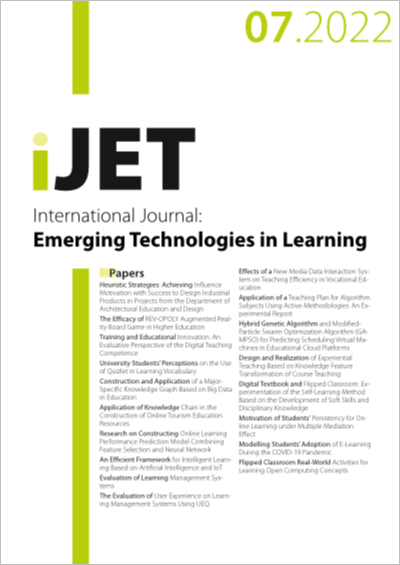Flipped Classroom Real-World Activities for Learning Open Computing Concepts
DOI:
https://doi.org/10.3991/ijet.v17i07.25767Keywords:
open data, open computing, education, e-learning, flipped classroomAbstract
Various “open” concepts in Computing, such as open standards, open data, open licenses or system interoperability are becoming more important in the professional lives of software engineers. However, students usually do not receive a systematic education about these concepts; rather they sporadically learn about a subset of these topics. This paper presents the revised version of the Open Computing course in the University of Zagreb, Faculty of Electrical Engineering and Computing (FER), which teaches a clear set of current topics focused on open data and correlating concepts. The new e-learning course is carried out using the “flipped classroom” educational method; students construct their knowledge in a set of real-world mini-activities throughout the course, instead of passively learning from the official course resources. In this paper, we discuss our flipped classroom activities, their relation to revised Bloom’s taxonomy of educational objectives, and present the evaluation of the first course instance using this model. Students’ feedback shows they welcome this change in approach, finding the course useful and interesting, and preferring this method to the traditional full lecture setting.
Downloads
Published
How to Cite
Issue
Section
License
Copyright (c) 2022 Ivana Bosnić, Igor Čavrak, Bastiaan van Loenen

This work is licensed under a Creative Commons Attribution 4.0 International License.



